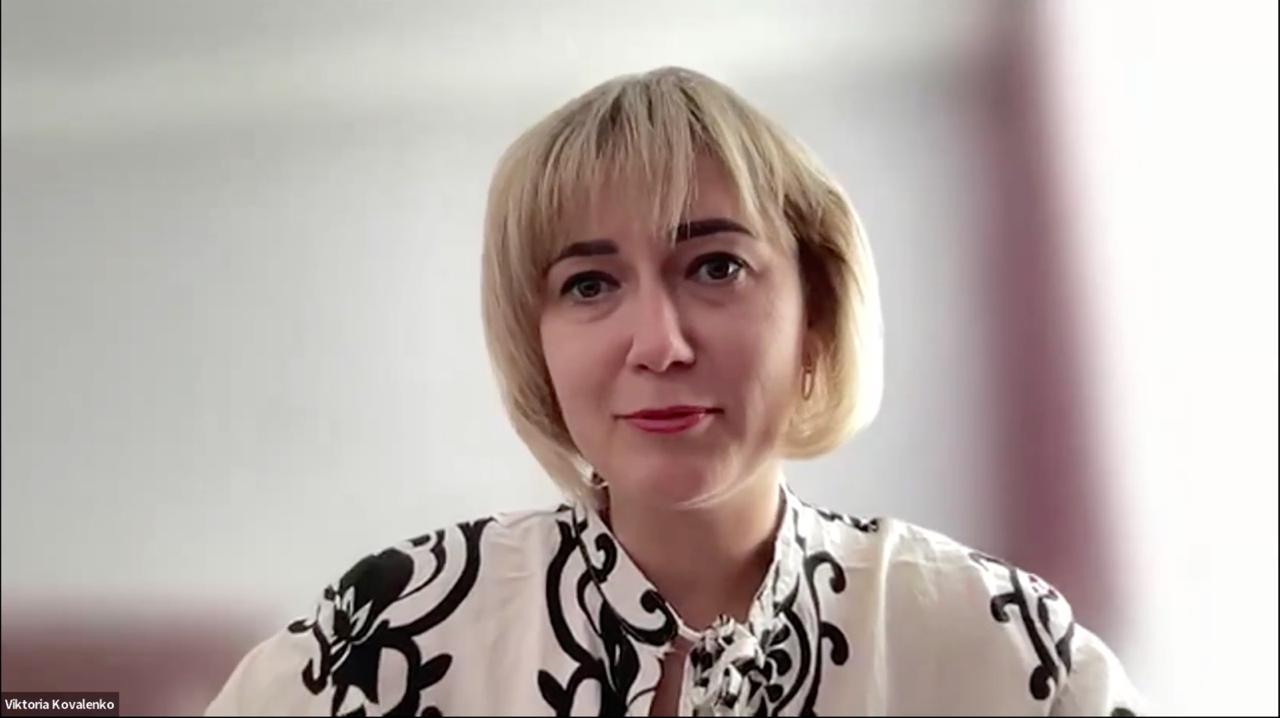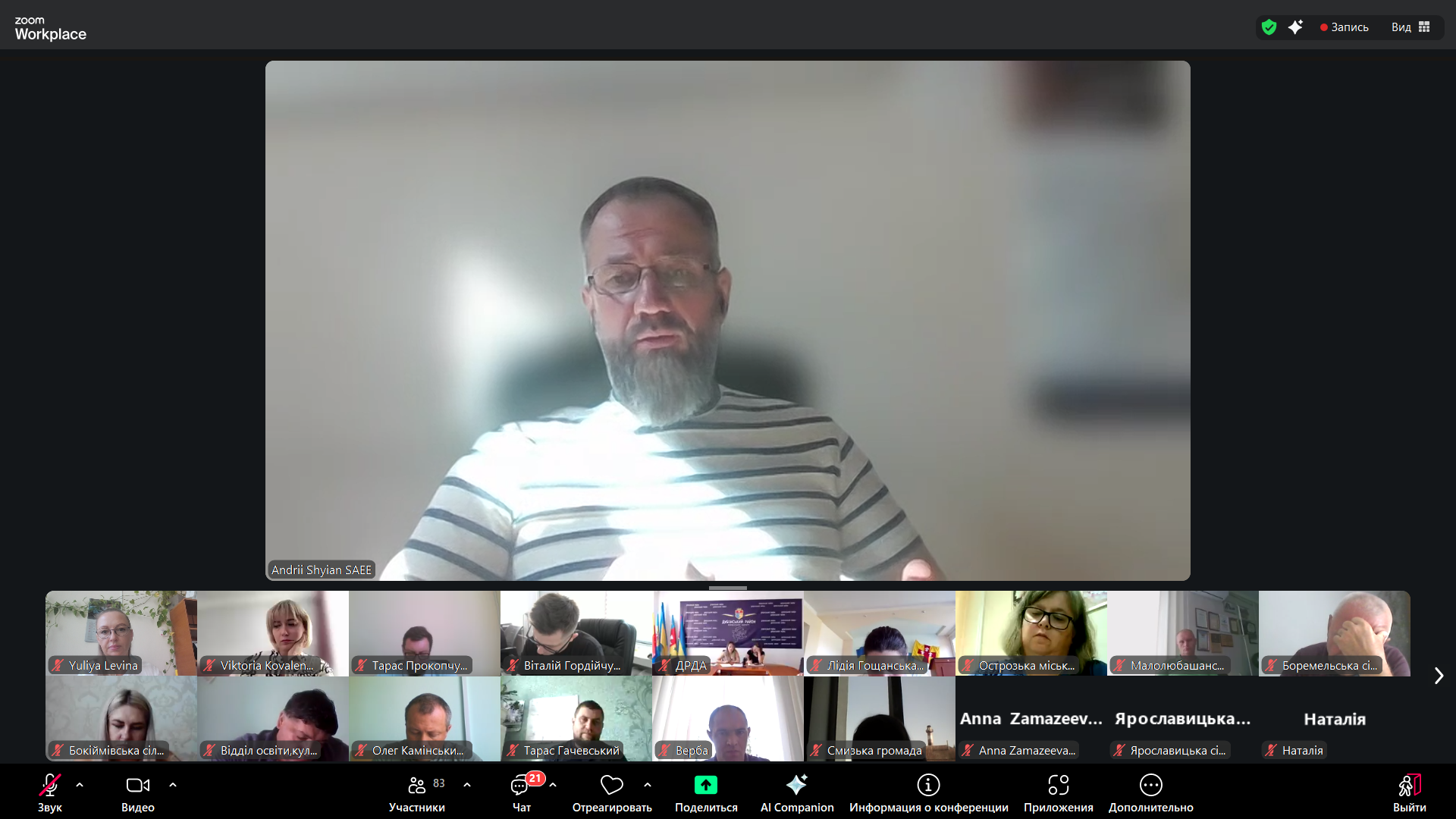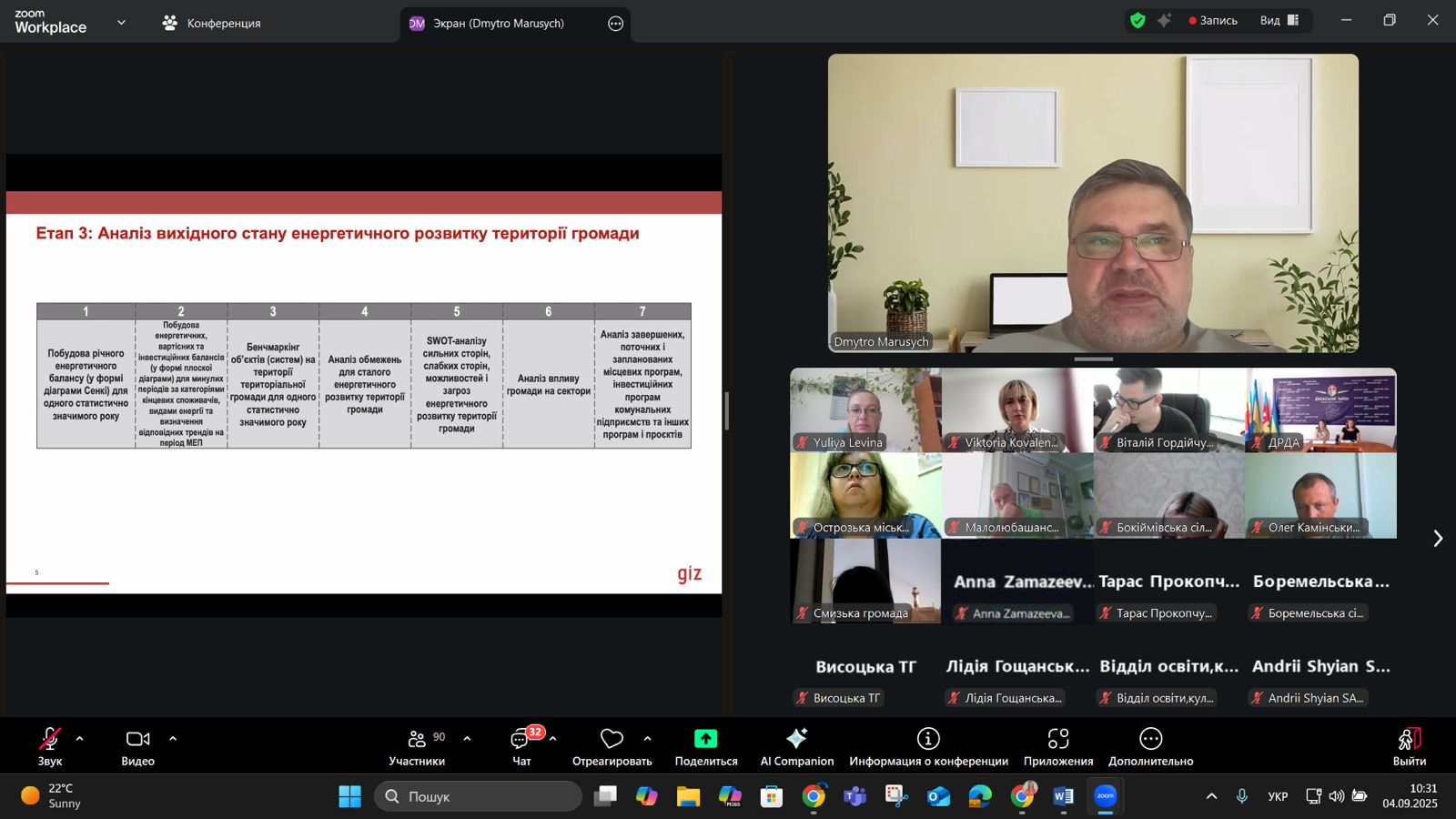Local Energy Plans – A Strategy for Community Energy Independence
The State Agency on Energy Efficiency and Energy Saving of Ukraine (SAEE), together with partners DiXi Group and GIZ, held the second webinar–meeting with municipalities on the development and implementation of Local Energy Plans (LEPs). This session focused on the communities of Rivne region.
During these webinars, SAEE, together with experts, provides municipalities with practical guidance on creating local energy plans, which are developed and approved by local authorities in accordance with the Law of Ukraine “On Energy Efficiency.”
During the webinar, SAEE Head Hanna Zamazieieva emphasized the benefits communities will gain from developing LEPs.
“Currently, it is really challenging for residents to prepare a municipal energy plan on their own. It is a comprehensive document that requires a large amount of data, detailed calculations, expert knowledge, and most importantly — time for development and approval. However, in the future, an LEP will significantly simplify community management, serving as a kind of roadmap in the energy sector,” Zamazieieva highlighted.
Developing an LEP shows how much energy a community consumes, identifies key problem areas — from outdated boiler houses to buildings with significant heat losses — and outlines solutions that need to be implemented in the coming years. With an LEP, the community can act strategically rather than chaotically, gradually implementing changes.
“An LEP is an effective tool for budget planning. When there is a clear list of upcoming projects, it is possible to forecast which funds are needed, what the community can finance on its own, and what can be covered by state support or international grants. This makes the budget more predictable, which is especially important during wartime,” said the Head of SAEE.
In addition, implementing measures outlined in the LEP allows communities to achieve substantial energy savings.
“These savings can then be spent on insulating schools, kindergartens, hospitals, and other priority needs,” Zamazieieva emphasized.
The meeting with Rivne municipalities, like the previous one with Vinnytsia, was moderated by Viktoria Kovalenko, General Manager for Sustainable Development at DiXi Group — an analytical center that pioneered work with the LEP Methodology and over two years has helped ten communities not only develop but also approve their energy plans.
“An LEP should be a ‘living’ strategic planning document with concrete measures to improve energy efficiency on the community’s path to energy independence. Success in its development depends on a comprehensive team approach within the community, active collaboration between municipalities, institutional development, and enhancement of expert skills. An LEP is about change — and change happens when the plan is realistic, comprehensive, and created in partnership,” Kovalenko emphasized.
Andrii Shyian, Head of the SAEE Department for Energy Efficiency Development, assured municipal representatives of the agency’s openness to communication and provision of advisory support throughout the process. He also reminded participants of the requirement under Part Six of Article 21 of the Law of Ukraine “On Energy Efficiency” to adopt local energy plans by 13 November 2025.
Important! From 1 January 2026, the updated provision of the Law of Ukraine “On Energy Efficiency” comes into effect. It stipulates that a local energy plan must be approved in order for local authorities to receive state support for energy efficiency measures, as well as to implement regional infrastructure modernization programs. This applies to existing state energy efficiency support programs as well.
According to the Methodology, LEPs are developed and approved for each territorial community by the corresponding village, settlement, or city council.
Information on the regional council’s decision to approve the regional energy plan must be sent to SAEE within ten working days of adoption. It must include, among other things, details on publication of the plan on the official website of the regional council.
SAEE has already contacted each regional military administration requesting that by 1 October 2025 they provide consolidated information on the status of LEP development and approval by territorial communities and regional councils. SAEE is therefore awaiting LEPs, as well as questions and proposals from communities.
SAEE supports communities through training, consultations, and engagement with international partners. The first webinar on LEPs was held for Vinnytsia region, the second for Rivne region, which gathered nearly 100 participants. Additionally, a Regional Office for Decarbonization and Energy Efficiency operates in Rivne City Council and is open to collaboration with communities.



